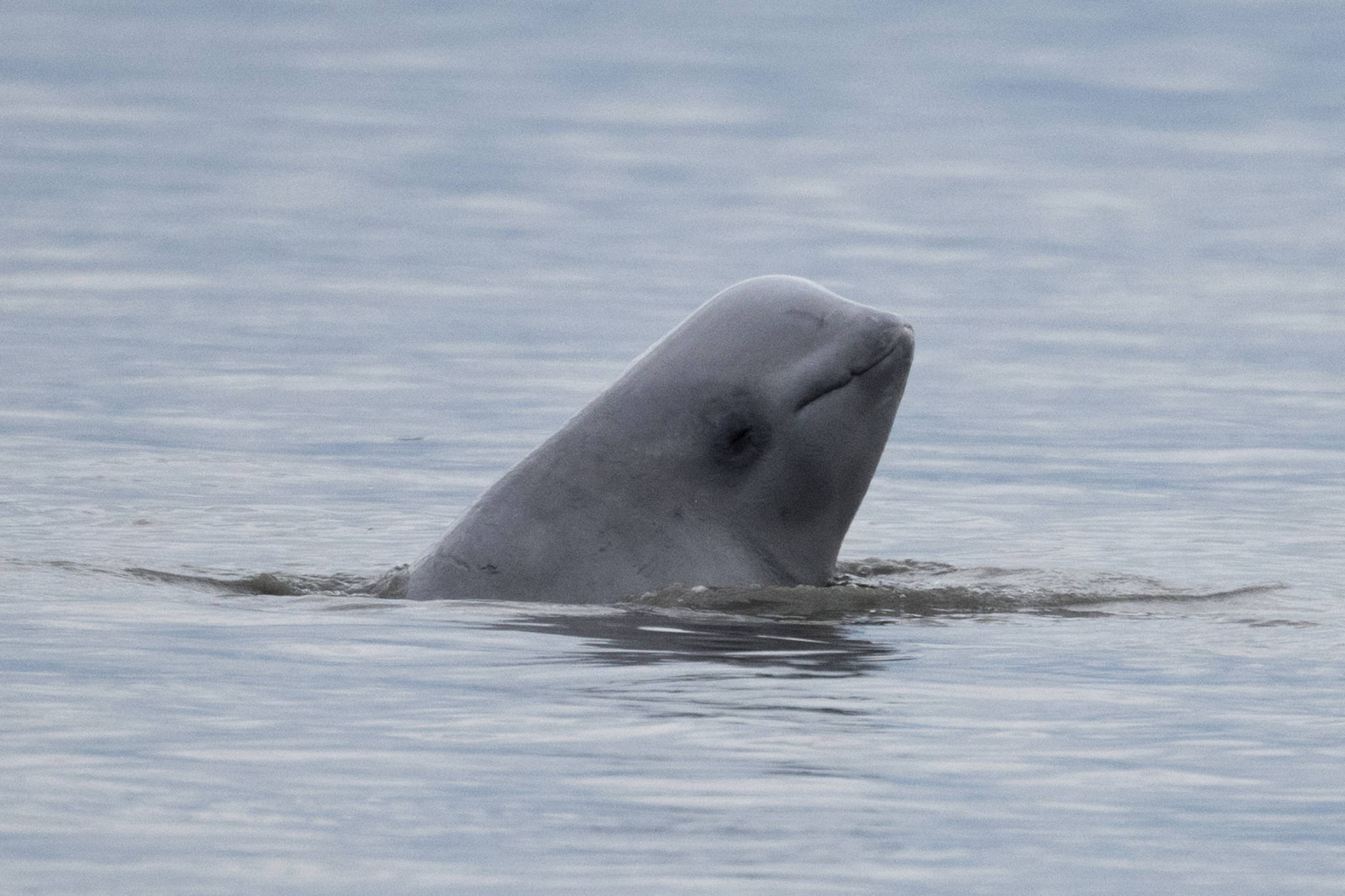ANCHORAGE — The population of endangered beluga whales in Alaska’s Cook Inlet continues to decline, federal marine mammal authorities announced Tuesday.
A biennial survey conducted by the fisheries arm of the National Oceanic and Atmospheric Administration estimated the population of the white whales at 250 to 317, with a median estimate of 279.
“The population is estimated to be smaller and declining more quickly than previously thought,” NOAA Fisheries said in the announcement.
The survey is based on data collected by aerial surveys in summer 2018.
The survey also documented that a contraction has persisted of the summer range of belugas, the geographical area where they live. Since 2008, on average 81% of the total population occupied the Susitna Delta near the north end of the inlet in early June during the aerial survey period. Before that, about 50 percent did.
The 2009-18 range for belugas is estimated to be only 29% of the range observed in 1978-79, according to the survey.
The population estimate three years ago was about 340 whales. The agency in January 2017 released a Cook Inlet beluga whale recovery plan.
Cook Inlet belugas are one of five beluga populations in U.S. waters. Cook Inlet stretches 180 miles from Anchorage to the Gulf of Alaska. NOAA Fisheries three years ago said the carrying capacity for the area was 1,300 animals.
Beluga whales feed on salmon, smaller fish, crab, shrimp, squid and clams and in late summer can be spotted from highways leading from Anchorage, chasing salmon schooled at stream mouths. The whales turn white as adults and can reach 15 feet long.
The Cook Inlet beluga population dwindled steadily through the 1980s and early ’90s. The decline accelerated between 1994 and 1998 when Alaska Natives harvested nearly half the remaining 650 whales in only four years.
Subsistence hunting ended in 1999. Federal officials initially figured that controlling subsistence hunting would allow the population to recover. When it did not, they declared belugas endangered in 2008.
NOAA Fisheries officials in 2017 acknowledged that they did not know why the population has not recovered.
Among the identified potential threats to belugas are catastrophic events, such as natural disasters or oil spills; cumulative effects of multiple stressors; and noise. Disease agents, such as blooms of harmful algae, loss of habitat, a reduction in prey and unauthorized killing also are threats.
Oil and natural gas extracted from Cook Inlet provides energy for Anchorage and other Southcentral Alaska locations.
Kristen Monsell, an attorney for the Center for Biological Diversity, called the survey “heartbreaking news for a species already struggling to survive.” She said it’s more evidence why the Trump administration authorization of oil and gas activity in Cook Inlet, including seismic airgun blasting, is so reckless.
“These amazing whales already face an onslaught of noise pollution that’s threatening their existence. If we’re going to save them, our government has to stop handing out permits to harass the whales to oil and gas companies,” she said.
• By DAN JOLING, Associated Press

